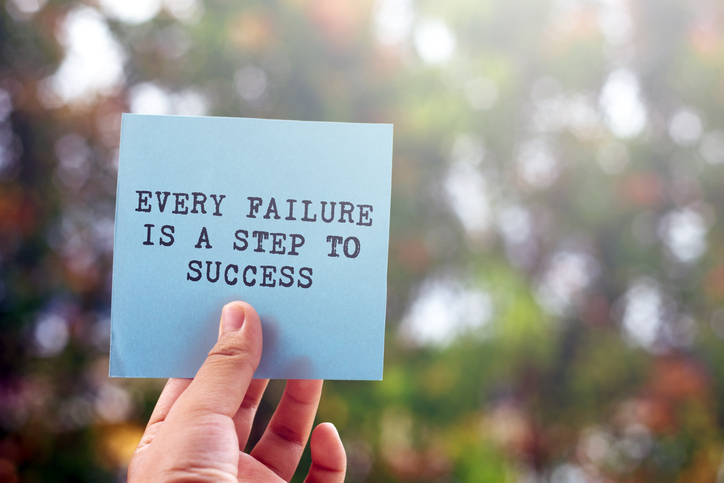It’s time to look at failure in a different light. Because it just may be one of the most crucial steps in reaching incredible success.
Sure, none of us actively welcome failure or enjoy it when it hits. It often means discomfort and the loss of time, money, patience—and perhaps pride. It’s an uncomfortable space to be in. We feel all eyes are on us. We feel the weight of social judgment and assume everyone is criticizing us. But, being our own harshest critics, this judgment is almost always fully imagined. So, rather than pulling ourselves down, why not become our own biggest advocates and lift ourselves up?
After all, failure is not equated to weakness. If you’re alive and trying new things, you absolutely will fail at some point. It’s evidence that you’ve come up with new, creative ideas to try and you’re pushing beyond the status quo. It’s these new ideas that change the world. So don’t be afraid to go after them!
Imagine 50 years ago, telling your grandparents that one day they will be able to order products to be delivered to their home with a simple voice command or that they’d be able to hold a conversation with someone at their front door while they’re miles away. All new ideas can seem a little hard to believe at first, but our world can’t advance without them.
“There is no innovation and creativity without failure. Period.”
– Brené Brown
Should your ideas fail, it’s the time to practice perseverance. Only the strongest of us get back up after a failure and try and try again. Learning to bounce back is an essential skill if you want to succeed. It’s what shows real character, persistence and grit.
It’s after we’ve waded through the disappointment and come out the other side that we see the true value of failure. It gives us the opportunity to look at what’s not working and figure out how to make it work. It’s invaluable feedback that shows us something needs to change before we can reach success.
We all fail, so let’s just be willing to do it. It makes us more interesting and more relatable. Why not own our past failures and be willing to share them with others? It’s an excellent way to develop rapport and build trust with others by showing some vulnerability. It may just be your finest networking tool!
Take some time to think about a past failure. What went wrong? What did you do right? How can you take that information and forge ahead? Failure is simply feedback, after all—not the end of your story.


